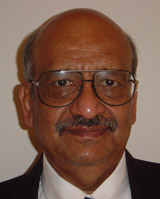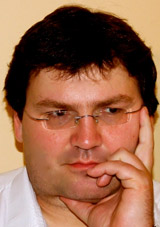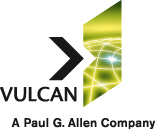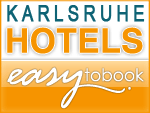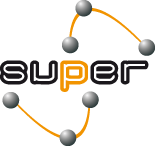Schedule
You can also download the full ISWC 2008 program book. For the opening hours of the registration desk, see Registration.
- Sunday, October 26
- Monday, October 27
- Tuesday, October 28
- Wednesday, October 29
- Thursday, October 30
Sunday Oct 26
Note that you can sleep one more hour this night!
Workshops
| 8:30-17:30 | Club Room: 3rd International Workshop On Ontology Matching |
| 9:00-17:30 | Room 2.05: 4th International Workshop On Uncertainty Reasoning For The Semantic Web |
| 9:00-17:30 | Room 1.28: 7th Semantic Web Services Challenge Workshop |
| 9:00-12:30 | Room 2.08: Incentives For The Semantic Web (half-day) |
| 9:00-17:30 | Forum Room: 4th International Workshop On Semantic Web Enabled Software Engineering (SWESE2008) |
| 9:00-17:30 | Room 1.31: Terra Cognita 2008 |
| 9:00-17:00 | Johann Peter-Hebel-Saal: 5th International Workshop on OWL: Experiences and Directions (OWLED 2008) Day 1 (co-located event) |
Tutorials
| 9:00-17:30 | Alfred-Mombert-Saal: Introduction to the Semantic Web Invited Tutorial |
| 9:00-12:30 | Room 1.23: Formal Concept Analysis for the Semantic Web (half-day) |
| 9:00-12:30 | Room 1.27: A Semantic Multimedia Web: Create, Annotate, Present and Share your Media (half-day) |
| 14:00-17:30 | Room 1.27: Working Modularly with OWL (half-day) |
| 14:00-17:30 | Room 1.23: RDFa – Bridging the Web of Documents and the Web of Data (half-day) |
| 14:00-17:30 | Room 2.08: Knowledge Representation and Extraction for Business Intelligence (half-day) |
Monday Oct 27
Workshops
| 14:00-17:30 | Room 1.31: 3rd ExpertFinder Workshop Personal Identification and Collaborations – Knowledge Mediation and Extraction (PICKME’08) |
| 9:00-17:30 | Club Room: Social Data on the Web |
| 9:00-17:30 | Room 2.05: Ontology-supported Business Intelligence (OBI 2008) |
| 9:00-17:30 | Room 1.23: Nature inspired Reasoning for the Semantic Web (NatuReS) |
| 9:00-12:30 | Room 1.31: International Workshop on Ontology Dynamics (IWOD2008) (half-day) |
| 9:00-17:30 | Room 1.28: Service Matchmaking and Resource Retrieval in the Semantic Web |
| 9:00-17:30 | Forum Room: 4th International Workshop on Scalable Semantic Web Knowledge Base Systems (SSWS2008) |
| 9:00-17:30 | Johann Peter-Hebel-Saal: 5th International Workshop on OWL: Experiences and Directions (OWLED 2008) Day 2 (co-located event) |
Tutorials
| 9:00-17:30 | Alfred-Mombert-Saal: Reasoning for Ontology Engineering and Usage |
| 9:00-12:30 | Room 1.27: RSWA 2008 – Realizing a Semantic Web Application (half-day) |
| 9:00-12:30 | Room 2.08: How to Publish Linked Data on the Web (half-day) |
| 14:00-17:30 | Room 1.27: Semantic Web for Health Care and Life Sciences (half-day) |
| 14:00-17:30 | Room 2.08: Free Semantic Content: Using OpenCyc in Semantic Web Applications (half-day) |
Tuesday Oct 28
| 8.45 | Opening Ceremony (Johannes Brahms hall) |
| 9.00-10.00 | Keynote 1: Multimedia Semantic Web (Johannes Brahms hall) Ramesh Jain, UCI |
| 10.00-10.30 | Coffee Break |
| 10.30-12.30 | Research 1: Ontology Engineering (Johann Peter Hebel hall) Chair: Enrico Motta
|
| 10.30-12.30 | Research 2: Data Management (Johannes Brahms hall) Chair: Kunal Verma
|
| 10.30-12.30 | In Use: Services and Infrastructure (Alfred Mombert hall) Chair: Massimo Paolucci
|
| 12.30-14.00 | Lunch break |
| 14.00-15.30 | Research 1: Software and Service Engineering (Johann Peter Hebel hall)
|
| 14.00-15.30 | Research 2: Panel “An OWL 2 Far?” (Johannes Brahms hall) moderated by Peter F. Patel-Schneider Panelists: Stefan Decker, Michel Dumontier, Tim Finin, Ian Horrocks The definition of OWL, the ontology language underlying the Semantic Web, is based on formal representation methods. This provides benefits, in that tools have a firm definition of what they are supposed to do, but can have problems, due to difficulty or expense of building tools or mismatch with needs. The panel will discuss whether the general idea of designing standard Semantic Web languages with steadily increasing power (e.g., the progression from RDF to RDFS to OWL to OWL 2 to …) all based on formal methods is the right way to support the Semantic Web. What level of expressive power does the Semantic Web need? How should standard Semantic Web languages be designed? Does the Semantic Web even need formality? |
| 14.00-15.30 | In Use: Business Applications (Alfred Mombert hall)
|
| 15.30-16.00 | Coffee break |
| 16.00-17.30 | Research 1: Non-standard Reasoning with Ontologies (Johann Peter Hebel hall) Chair: Paolo Bouquet
|
| 16.00-17.30 | Research 2: Semantic Retrieval (Johannes Brahms hall) Chair: Dunja Mladenic
|
| 16.00-17.30 | In Use: Applications from Home to Space (Alfred Mombert hall) Chair: Deepali Khushraj
|
| 18.30-20.30 | Poster Session and Welcome Reception (Foyer) |
Wednesday Oct 29
| 9.00-10.00 | Keynote 2: Freebase: An Open, Writable Database of the World’s Information (Johannes Brahms hall) John Giannandrea, Metaweb Technologies Inc. |
| 10.00-10.30 | Coffee Break |
| 10.30-12.30 | Research 1: OWL (Johann Peter Hebel hall) Chair: Frank van Harmelen
|
| 10.30-12.30 | Research 2: Ontology Alignment (Johannes Brahms hall) Chair: Harith Alani
|
| 10.30-12.30 | Industry Talks 1 (Alfred Mombert hall) Chair: Joel Sachs
|
| 12.30-14.00 | Lunch break |
| 14.00-15.30 | Research 1: Description Logics (Johann Peter Hebel hall) Chair: Gerd Stumme
|
| 14.00-15.30 | Research 2: User Interfaces (Johannes Brahms hall) Chair: Natasha Noy
|
| 14.00-15.30 | Industry Talks 2 (Alfred Mombert hall) Chair: Fuesane Cheng
|
| 15.30-16.00 | Coffee break |
| 16.00-18.00 | Semantic Web Challenge & Billion Triple Challenge (Johannes Brahms hall) |
| 19.30-20.00 | Reception & Get Together (Foyer) |
| 20.00-01.00 | Dinner & Dancing (Weinbrennersaal) |
Thursday Oct 30
| 9.00-10.00 | Keynote 3: Message in a Bottle or: How can the Semantic Web Community be more convincing? (Johannes Brahms hall) Stefan Decker, DERI |
| 10.00-10.30 | Coffee Break |
| 10.30-12.30 | Research 1: Web Data and Knowledge (Johannes Brahms hall) Chair: Luciano Serafini
|
| 10.30-12.30 | Research 2: Semantic Web Services (Johann Peter Hebel hall) Chair: Vasant Honavar
|
| 10.30-12.30 | In Use: Knowledge Management (Alfred Mombert hall) Chair: Mike Dean
|
| 12.30-14.00 | Lunch break |
| 14.00-15.30 | Research 1: Semantic Social Networks (Johannes Brahms hall) Chair: Fausto Giunchiglia
|
| 14.00-15.30 | Research 2: Rules and Relatedness (Johann Peter Hebel hall) Chair: Michael Kifer
|
| 14:00 | Lightning Talks (Alfred Mombert hall) |
| 15.30-16.00 | Coffee break |
| 16.00-17.30 | Closing Ceremony and Best Paper Awards (Johannes Brahms hall) Outlook on ISWC2009 |

